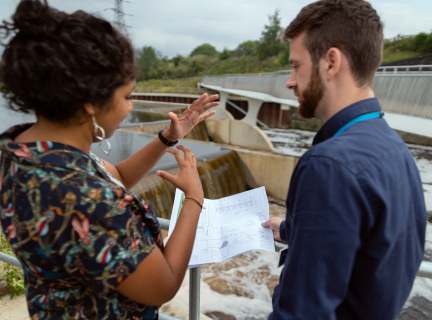Skills, Education and Experience

Skills
- Critical thinking and problem solving
- Oral communication and public speaking
- Planning and organizing
- Team project work
- Project management
- Proposal writing and financial management
- Committee work- industry ethics
Education and Experience
- Bachelor’s degree in environmental engineering or related engineering discipline is required
- Master’s degree or doctorate in a related engineering discipline may be required
Qualifications
This occupation is regulated in British Columbia
If you are working as an engineer you must either:
- be registered by the Engineers & Geoscientists British Columbia EGBC, (formerly the Association of Professional Engineers & Geoscientists BC -APEGBC) in order to practise as a Professional Engineer (P.Eng)
OR
- work under the direct supervision of someone who is registered as a Professional Engineer in BC
Licensing Requirements for Civil Engineers
You must be licensed by Engineers & Geoscientists British Columbia (formerly APEGBC) to use the title “Engineer.” This allows you to approve engineering drawings and reports and to practise as a professional engineer (P.Eng.).
Registration requires:
- graduation from an accredited educational program – four year full-time bachelor’s degree
- four years of supervised work experience in engineering
- successfully passing the professional practice examination
- completion of the law and ethics seminar
Source: Engineer First Time Applying in Canada
For more information:
